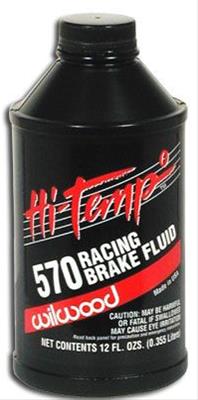My 2002 car owners manual of my car specifies DOT 3. Perhaps DOT 4 did not exist yet.
Toyota only sells DOT 5.1 and confirms it is suitable for my car (RAV4 2003 with ABS).
My local garage uses DOT 4 and said they would not want to use 5.1 that I offered to provide, Toyota or not.
Is there a reason for not using the latest spec fluid in an older car?
Toyota only sells DOT 5.1 and confirms it is suitable for my car (RAV4 2003 with ABS).
My local garage uses DOT 4 and said they would not want to use 5.1 that I offered to provide, Toyota or not.
Is there a reason for not using the latest spec fluid in an older car?

